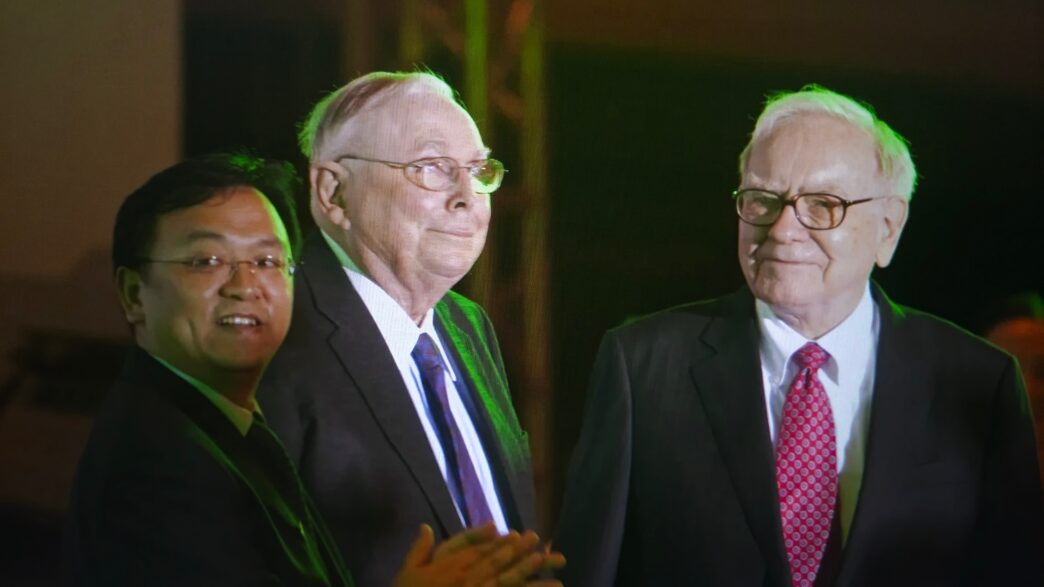Executive Summary
The Story So Far
Why This Matters
Who Thinks What?
The disciplined skepticism consistently championed by legendary investors Warren Buffett and Charlie Munger offers a potent defense for any investment portfolio, particularly in today’s often volatile and speculative markets. For decades, these titans of industry, through their leadership at Berkshire Hathaway, have demonstrated that a cautious, fundamentally driven approach—one that questions market fads and focuses on intrinsic value—is not merely a conservative stance but a powerful engine for long-term wealth creation. Their philosophy, rooted in understanding what one owns and demanding a margin of safety, serves as a timeless blueprint for investors seeking to navigate uncertainty and protect their capital from irrational exuberance and unforeseen downturns.
The Core of Buffett and Munger’s Skepticism
At its heart, the skepticism espoused by Buffett and Munger is a refusal to blindly follow market trends or succumb to speculative frenzies. It is about an unwavering focus on the underlying business rather than the fluctuating price of a stock. They emphasize buying a piece of a well-understood company with strong fundamentals, a durable competitive advantage, and competent management, always at a sensible price.
This approach mandates a deep understanding of the business model, its industry, and its future prospects. Munger famously advocated for investing within one’s “circle of competence,” meaning only in businesses one truly comprehends. Anything outside this circle, regardless of its popularity or perceived potential, is viewed with healthy skepticism and typically avoided.
Why Skepticism Protects Your Portfolio
Adopting a skeptical mindset serves as a crucial safeguard against common investment pitfalls. By questioning hype and scrutinizing fundamentals, investors are less likely to overpay for assets during market bubbles, thereby reducing their exposure to significant losses when those bubbles inevitably burst.
It instills a vital sense of discipline, preventing emotional decisions driven by fear of missing out (FOMO) or panic during downturns. This measured approach encourages investors to think like business owners, focusing on long-term value creation rather than short-term price movements. Such prudence naturally leads to a portfolio constructed of resilient, high-quality assets capable of weathering various economic cycles.
Avoiding Speculative Bubbles
One of the most significant protective aspects of Buffett and Munger’s skepticism is its ability to steer investors clear of speculative bubbles. Their history is replete with examples where they deliberately avoided popular, yet fundamentally unsound, investment trends.
During the dot-com bubble of the late 1990s, for instance, Berkshire Hathaway largely eschewed technology stocks, which were trading at exorbitant valuations with little underlying profit. While criticized at the time for being “behind the curve,” their skepticism ultimately protected their capital from the ensuing crash, allowing them to acquire quality assets at distressed prices later.
Rejecting Unfamiliar or Overly Complex Investments
Munger, in particular, has been outspoken in his disdain for investments he deems too complex or lacking intrinsic value. His strong criticism of cryptocurrencies, famously calling Bitcoin “rat poison squared,” exemplifies this stance. Buffett echoed this sentiment, stating he wouldn’t buy all the Bitcoin in the world for $25 because it produces nothing.
This rejection stems from their core principle: if you cannot understand how an asset generates value or predict its future cash flows with reasonable certainty, it is best to avoid it. Such caution protects portfolios from assets whose valuation is purely speculative, relying solely on the “greater fool” theory.
Applying Buffett and Munger’s Skepticism to Your Own Portfolio
Implementing this valuable skepticism doesn’t require billions of dollars or decades of experience; it demands a shift in mindset and a commitment to fundamental principles. Here’s how individual investors can apply their wisdom.
Understand What You Own
Before investing in any stock, take the time to truly understand the business behind it. What does it do? How does it make money? Who are its competitors? What are its competitive advantages, often referred to as an “economic moat”? If you cannot articulate the business model simply, perhaps it falls outside your circle of competence.
Focus on Business Fundamentals
Look beyond the stock price and delve into the company’s financial statements. Analyze its revenues, earnings, debt levels, and cash flow. A healthy balance sheet and consistent profitability are far more indicative of a sound investment than a rapidly rising stock chart. Prioritize companies with a history of strong management and a clear, sustainable business strategy.
Demand a Margin of Safety
The concept of a “margin of safety,” popularized by Benjamin Graham, Buffett’s mentor, is crucial. This means buying an asset when its market price is significantly below your conservative estimate of its intrinsic value. This buffer protects against errors in judgment, unforeseen business setbacks, or general market downturns, providing a cushion for your investment.
Cultivate a Long-Term Perspective
True skepticism helps you ignore the daily noise and short-term market fluctuations. Buffett and Munger are famous for their “hold forever” mentality, focusing on the compounding power of quality businesses over decades. This long-term view allows businesses to grow and compound returns, transforming initial investments into substantial wealth.
Control Your Emotions
Perhaps the hardest but most essential application of their skepticism is emotional discipline. The market constantly tempts investors with promises of quick riches or instills fear during corrections. Skepticism acts as an emotional filter, encouraging rational thought over impulsive reactions. Be greedy when others are fearful, and fearful when others are greedy, as Buffett famously advised.
Be Wary of Leverage and Debt
Munger often warned against the dangers of excessive leverage, both in personal finance and corporate strategy. While debt can amplify returns in good times, it can equally amplify losses during downturns, leading to catastrophic outcomes. A skeptical approach questions the necessity and sustainability of high debt levels, preferring financially robust companies and personal balance sheets.
A Timeless Framework for Resilience
The enduring success of Warren Buffett and Charlie Munger is not a fluke but a testament to a principled, skeptical approach to investing. Their philosophy encourages investors to be thoughtful, patient, and fundamentally driven, rather than reactive or speculative. By embracing their skepticism, individual investors can build portfolios that are not only protected from the market’s irrationalities but are also positioned for significant, sustainable growth over the long run, fostering genuine financial well-being.








